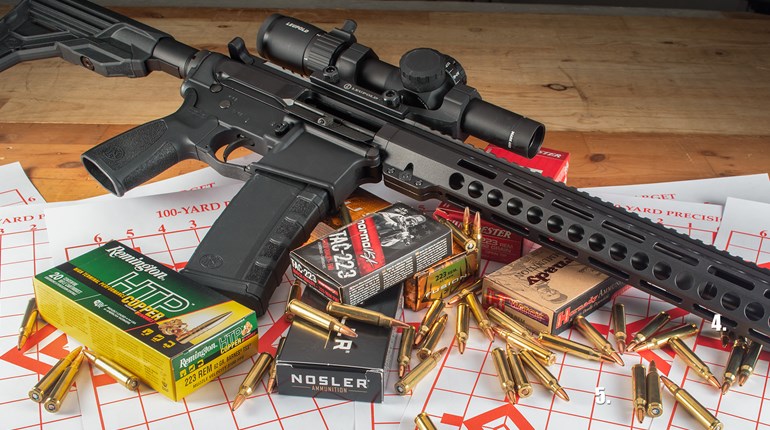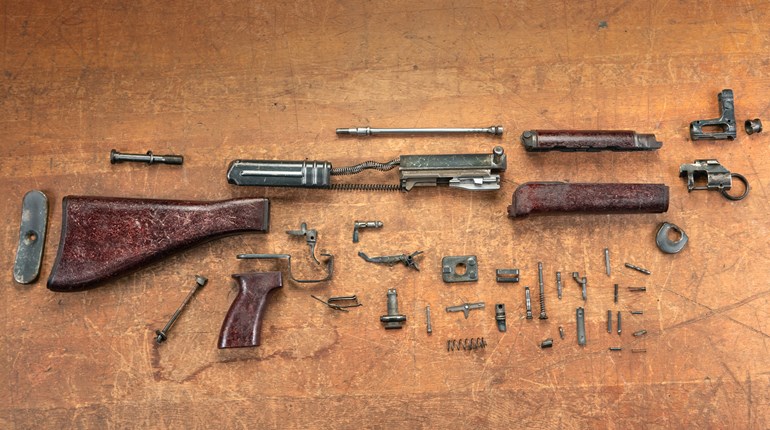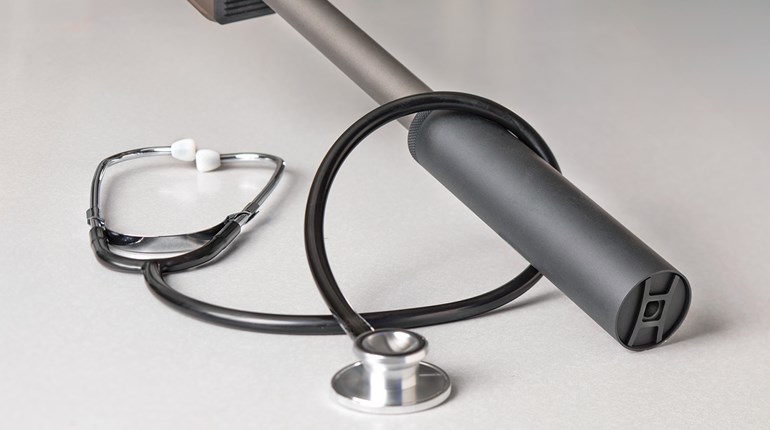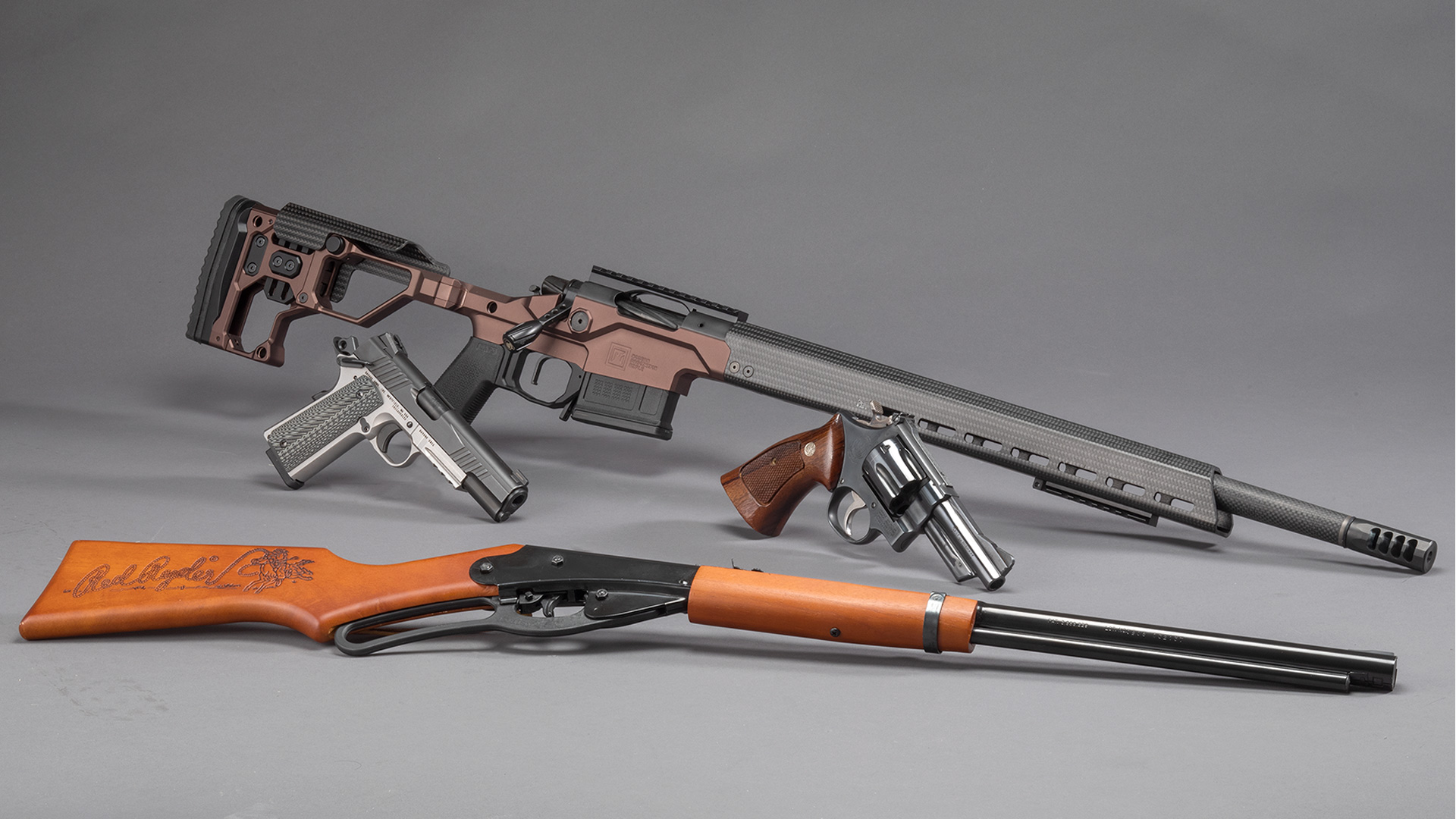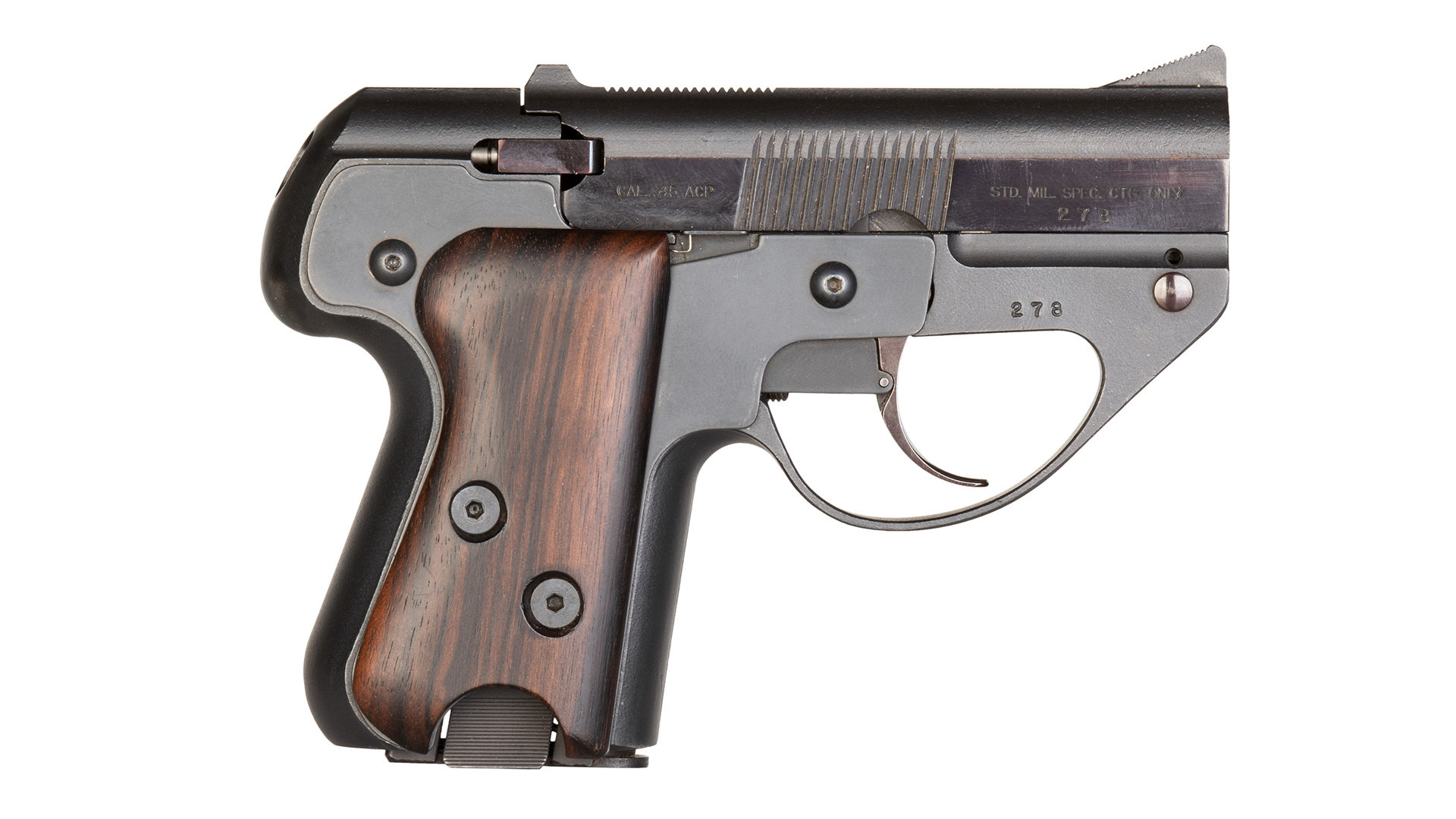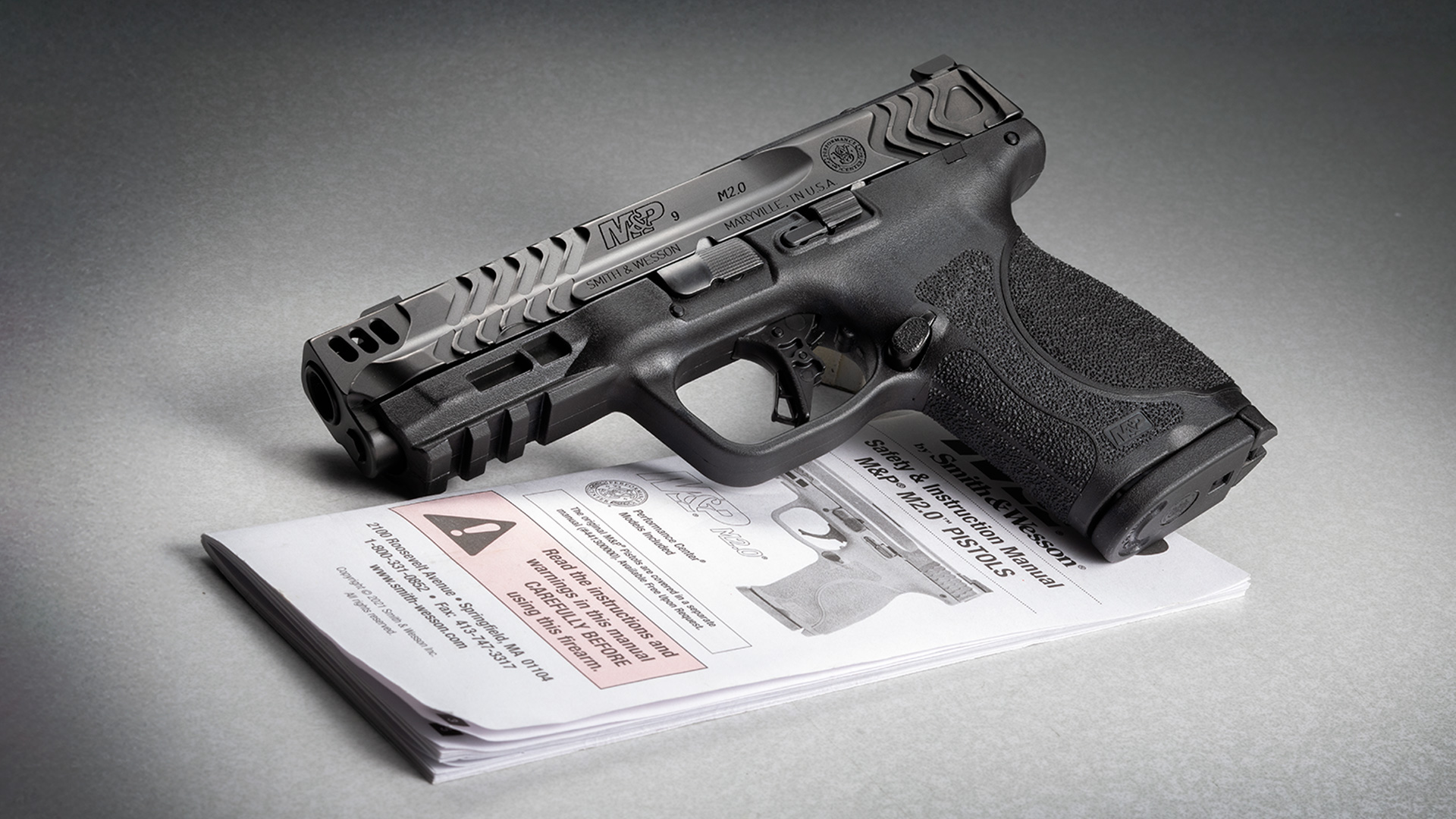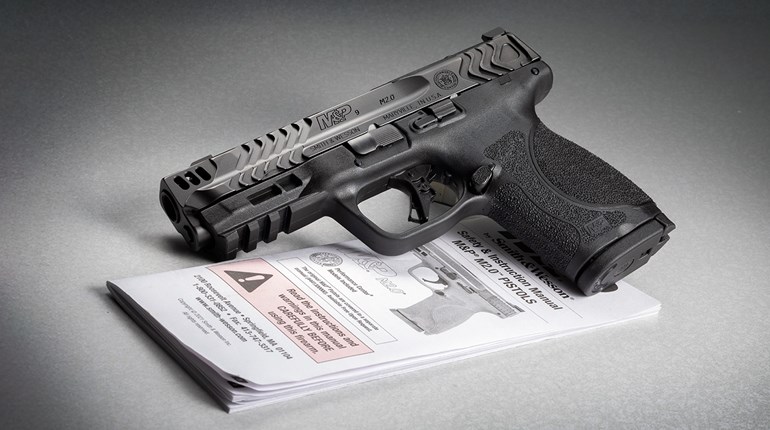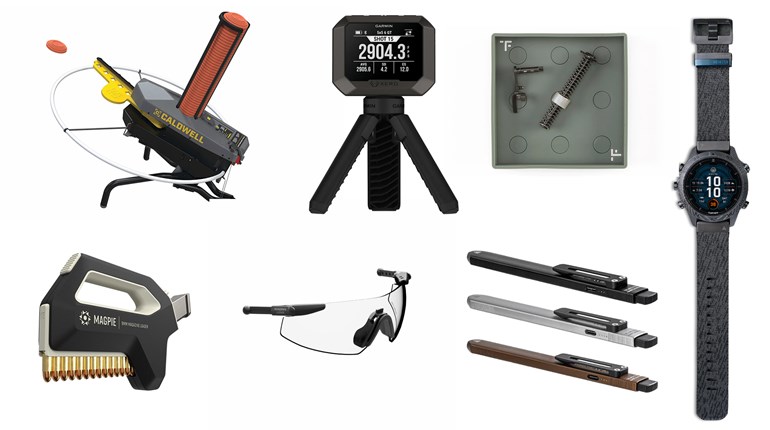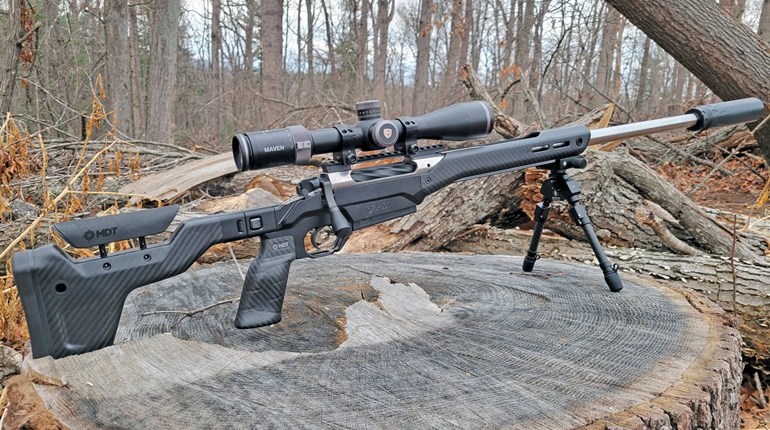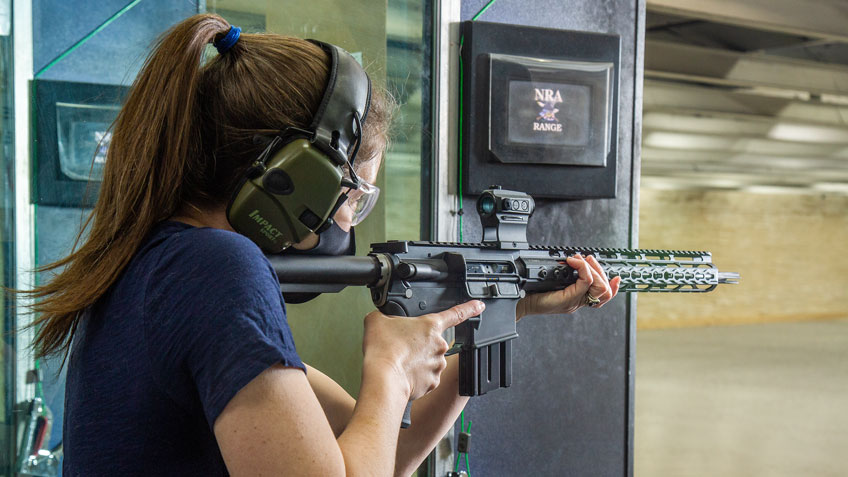
Lightweight rifles are increasing in popularity as women make educated choices about their self-defense firearms. This often leads men to realize that less bulk in a carbine is a desirable trait for their guns, too.
I spend a fair amount of time writing about lightweight rifles these days. While one could reasonably assume this is due to writer bias, the reality is that the trend toward ever-lighter and sleeker long-gun designs continues apace. Consumer demand and the steady evolution of material science seem to be the main drivers for this. While this is not new information, I have noticed an interesting twist on the trend: Female shooters are beginning to lead the way in the light-carbine race.
Engineers, manufacturers, marketing specialists and retailers have been paying close attention to the rapid increase in firearm ownership among women in recent years. The industry’s responses have not always been well-executed, but it appears most companies have finally realized that solid-pink rifles and lightweight pocket revolvers stoked with hot ammunition are not exactly the best ways to foster a life-long enthusiasm for shooting.
National Shooting Sports Foundation studies published in the summer of 2020 showed that approximately 25 percent of all adult women in the U.S. were gun owners and 40 percent of all first-time buyers were women. While most of the corresponding marketing efforts have been geared toward defensive handguns, my own experience shows a parallel rise in women’s interest in rifles as well.
The heavy customer interaction that comes with being a one-at-a-time gun builder makes it easy for me to track the demographics of my customers. This year, my rifle orders from women tripled over each of the previous three years. How they choose their rifles is also changing. Instead of keying off someone else’s recommendations, women are taking as active a role in their new-gun configurations as they do with any other personal choice. This quite-positive development points to an increase in the confidence of women shooters. It also helps to ensure that these aspiring long gunners will end up with something that fits their needs, rather than a rifle someone else thinks they need. I see this both from my manufacturer’s perch and from what I observe among the female rifle shooters in my family and friend groups.
The most common requests I receive from female shooters are for ease-of-carry and shooting comfort.
Contrary to what some marketing types think, having “Lady” in a gun’s model name is not the top issue for most women who are in the market for a new firearm. The most common requests I receive from female shooters are for ease-of-carry and shooting comfort. While this typically translates to light weight, other characteristics play their part, too. Overall length is minimized and calibers tend to stay on the mildly recoiling side, while still being appropriate for their intended use(s). The current pack leaders are 5.56 NATO and 9 mm, but even the demand for light .308 Win. semi-automatics is on the rise among my female customers. Front-end weight is a common concern, so keeping the center of gravity between trigger guard and foregrip is important. The smallest carbines tip the scales in the 4.75- to 5.5-pound range, and find favor with weight-focused shooters, regardless of gender or stature.
That “regardless” part is where another switch-up is taking place. Instead of the old pattern of customers’ wives ordering rifles that were similar to their husbands’, men are increasingly ordering clones of their wives’ lightweight rifles or requesting complete makeovers of their own, heavier guns. Why? Because weight and bulk do not discriminate. Take it from someone who spent 22 years carrying ridiculously big weapons while playing infantry: Heavy guns are only fun when you are, A) shooting hard-recoiling calibers, B) shooting from a supported, static position or C) sending a month’s wages downrange through a belt-fed machine gun. I’m not implying that one size fits all women any more than it does all men—no such animal exists in either case. But, the defensive-rifle road that women seem to be leading men down is fairly consistent: lighter, sleeker, simpler and yet still versatile.
I imagine that most people who frequent gun stores have overheard the cringe-worthy “Here’s what you need, little lady…” sales pitch. That scene has played out many times over the years and it is still as poor an approach to helping new gun buyers as it always was. Fortunately, most of the good folks who work gun counters enjoy helping their customers figure out which products make the most sense for given needs.
The key when guiding someone through the rifle shopping (or configuration) process is to set your own preferences aside. It’s OK to lean on experience and technical knowledge, but pay close attention to what the prospective rifle shooter is trying to accomplish. If that happens to be a female friend or family member, don’t be surprised if she brings home a lightweight, svelte carbine that is as easy to get on target as it is to carry. If it suddenly makes your go-to rifle feel like a behemoth, just know you are not alone.













